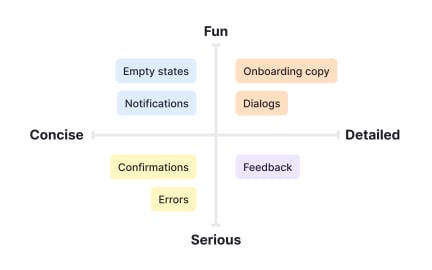Marketing
Marketing connects products to people by communicating value, building trust, and encouraging engagement through targeted messaging and channels.

What is Marketing?
Your product or service solves real problems but struggles to attract customers who would genuinely benefit from what you offer. You've probably experienced the frustration of having great solutions that remain invisible to people actively looking for exactly what you provide.
Most businesses treat marketing as promotion and advertising when it's actually the systematic process of understanding customer needs, creating value propositions that resonate, and building relationships that drive sustainable business growth.
Marketing is the comprehensive discipline of identifying customer needs, developing products and services that address those needs, communicating value propositions effectively, and building relationships that generate profitable customer action through strategic positioning, messaging, and distribution across multiple channels.
Companies with strong marketing capabilities achieve 2-3x faster revenue growth, 40% higher customer retention rates, and significantly better competitive positioning than businesses that treat marketing as an afterthought.
Consider how companies like Apple don't just sell technology, they market lifestyle aspirations and creative empowerment. Their marketing creates emotional connections that command premium pricing and fierce customer loyalty. Your marketing approach should create similar value perception for your target audience.
Why Marketing Matters
Your business has excellent products or services but struggles with inconsistent lead generation, unclear brand positioning, inefficient customer acquisition costs, and difficulty differentiating from competitors in crowded markets.
The cost of weak marketing compounds over time. You get slower growth, higher customer acquisition costs, price pressure from commoditization, and competitive disadvantage against companies that communicate value more effectively to the same target customers.
What strategic marketing delivers:
Predictable lead generation through systematic approaches to content creation, channel optimization, and conversion funnel management that generate consistent qualified prospects for sales teams.
Instead of hoping for referrals or relying on sporadic networking, you create marketing systems that deliver qualified leads consistently month after month.
Higher conversion rates because targeted messaging addresses specific customer pain points and positions your solution as the obvious choice for people experiencing problems you solve best.
Premium pricing capability through clear value differentiation that helps customers understand why your solution is worth more than cheaper alternatives, improving profit margins and business sustainability.
Stronger competitive positioning through thought leadership, customer success stories, and market education that establishes your company as the trusted authority in your space.
Scalable growth foundation because systematic marketing processes can be optimized and expanded as your business grows, supporting sustainable revenue increases without proportional marketing cost increases.
Advanced Marketing Strategies
Once you've established foundational marketing systems, implement sophisticated growth and optimization approaches.
Account-Based Marketing: Target specific high-value prospects with personalized campaigns that address their unique business challenges and demonstrate specific value propositions for their industry or company size.
Customer Advocacy Programs: Transform satisfied customers into marketing assets through case studies, referral programs, speaking opportunities, and user-generated content that builds credibility more effectively than company-created messages.
Marketing Attribution and Optimization: Implement sophisticated tracking that shows how different marketing touchpoints contribute to customer acquisition, allowing optimization of channel mix and budget allocation for maximum ROI.
Predictive Marketing Analytics: Use data analysis to identify prospects most likely to convert, optimal messaging timing, and content preferences that improve campaign effectiveness and resource allocation.
Marketing refers to the activities and strategies undertaken by businesses or individuals to promote, advertise, and sell products, services, or ideas. It involves identifying target audiences, understanding their needs and preferences, and developing and implementing plans to reach and engage with them effectively.
Marketing is important for businesses for several reasons:
- Awareness and visibility: Effective marketing increases brand awareness and visibility, ensuring that target audiences are aware of the business, its products, and its unique value proposition. It helps establish a strong market presence and builds recognition and familiarity among consumers.
- Customer acquisition and retention: Marketing plays a crucial role in acquiring new customers and retaining existing ones. It helps businesses identify and reach potential customers, communicate their offerings effectively, and build relationships that encourage customer loyalty and repeat purchases.
- Competitive advantage: Through marketing, businesses can differentiate themselves from competitors and highlight their unique selling points. It allows businesses to showcase their strengths, establish a competitive edge, and position themselves as the preferred choice in the market.
- Growth and profitability: Effective marketing strategies contribute to business growth and profitability. By attracting and retaining customers, generating leads, and driving sales, marketing efforts directly impact a business's revenue and overall success.
- Market insights: Marketing activities, such as market research and analysis, provide valuable insights into consumer behavior, preferences, and market trends. This information helps businesses make informed decisions, develop targeted strategies, and adapt to changing market dynamics.
The role of design in marketing is crucial and multi-faceted. Design plays a significant role in creating visually compelling and engaging marketing materials that capture attention, communicate effectively, and evoke desired emotions or responses from the target audience. Design helps businesses establish a strong brand identity and visual presence through the creation of logos, color schemes, typography, and other visual elements that embody the brand's personality and values. Effective design enhances the user experience by ensuring intuitive and user-friendly interfaces, layouts, and navigation in digital platforms or physical spaces. It also helps businesses create impactful advertising campaigns, eye-catching packaging designs, and visually appealing websites or landing pages that drive conversions and customer engagement. Design, when integrated with marketing strategy, contributes to building brand recognition, establishing credibility, and differentiating businesses from competitors in a competitive market. Overall, design is a powerful tool that plays a vital role in shaping the perception of a brand, attracting and retaining customers, and ultimately driving the success of marketing initiatives.
Recommended resources
Courses

Common Design Patterns

UI Components II

UX Writing
Lessons

Landing Pages

Brand Voice in UX Writing

Design in Marketing
Exercises
Assessments

Landing Pages

Email Design
Projects

KOTA: Landing Page (A Techwear Styling Experience)

FOURm - Landing Page for High-Conversion Fitness Startup













